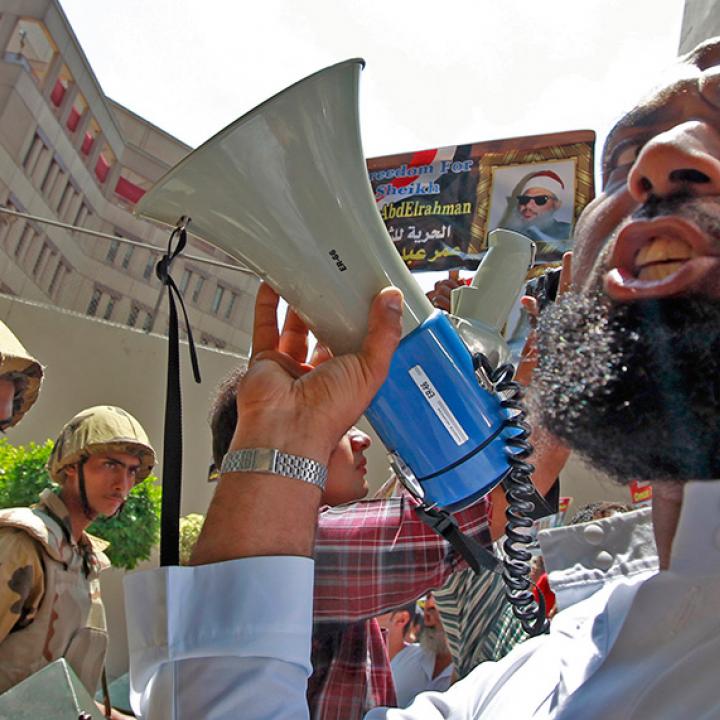
- Policy Analysis
- Policy Focus 119
Finding a Balance: U.S. Security Interests and the Arab Awakening

The Arab Awakening—in which local youths accomplished through weeks of nonviolent action what al-Qaeda had failed to do through years of terrorism and bloodshed—has created significant opportunities to counter radical Islamist propaganda and leverage financial tools against violently repressive regimes. Yet it has also strained the intelligence community's resources, forcing agencies to shift personnel and reprioritize their collection and analysis efforts.
In this volume, the fifth compilation in the Stein Program lecture series, senior officials -- listed below with the affiliation held at the time of the lecture -- trace the development of the Obama administration's counterterrorism and intelligence efforts during a period of dramatic change in the region. Matthew Levitt provides a comprehensive introduction that ties together the issues presented by the lecturers.
Offering their unique insights and perspectives:
- Mark Giuliano, assistant director of the FBI's Counterterrorism Division
- Daniel Glaser, assistant secretary for terrorist financing in the Treasury Department's Office of Terrorism and Financial Intelligence
- Steven Gomez, special agent in charge of the Counterterrorism Division in the FBI's Los Angeles field office
- Seamus Hughes, professional staff member, Senate Homeland Security and Governmental Affairs Committee
- Richard LeBaron, coordinator of the State Department's Center for Strategic Counterterrorism Communications
- David Shedd, deputy director of the Defense Intelligence Agency
- Ali Soufan, a former FBI counterterrorism agent with extensive experience interrogating al-Qaeda operatives
- Mark Williams, a member of the British Home Office's Strategic Coordination Team
THE EDITOR
Matthew Levitt is director of the Stein Program on Counterterrorism and Intelligence at The Washington Institute. Previously, he served as deputy assistant secretary for intelligence and analysis at the Treasury Department, where he played a central role in efforts to protect the U.S. financial system from abuse by terrorists, weapons proliferators, and other rogue actors.
Counterterrorism Lecture Series, Volume 5




